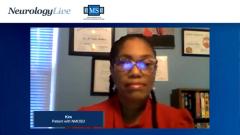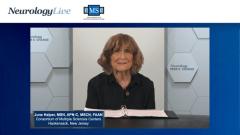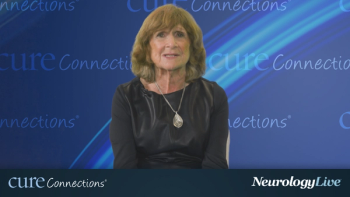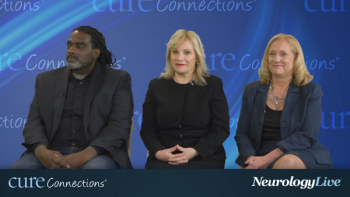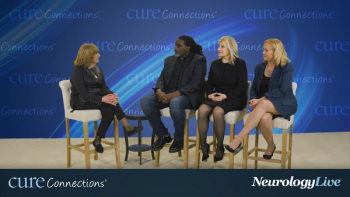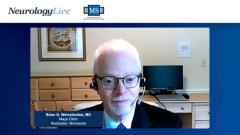
Support For Patients With NMOSD
Patients with neuromyelitis optica spectrum disorders highlight the types of resources and support that have helped them manage their neurological condition.
Episodes in this series

June Halper, MSN, APN-C, MSCN, FAAN: Kim, we talk about research and support. How have you obtained support through this most recent change in your life? It’s a rough time that you’ve been through.
Kim: Reaching out was interesting, as far as support. When I was in the hospital, I didn’t take this lightly.
I googled resources for any kind of foundation, and God had it. I’m a spiritual person. I went on the Guthy-Jackson Foundation website and found this wealth of information. I’ve been soaking up all that as far as resources. I sent a couple of emails, and when I got out of the hospital, followed up with some phone calls. Any other support with me has come from my village, my circle: my husband, who happens to be a pastor and minister, and all my family and friends who’ve been there for me since I was in the hospital. I also have a sorority of ladies that helped and sent me all types of encouraging words. My physical therapist is just amazing. This has been life changing. I’ve had to reach out to a few families, and they’ve been very supportive too. I’ve had to change a few things and suspend my time with tae kwon do, unfortunately. The doctors said, “You can’t do that anymore.” I’m not afraid now to reach out. I was somebody who was so independent, and I’m not afraid to reach out and get that help from people when they want to help me.
June Halper, MSN, APN-C, MSCN, FAAN: Doug, what about you? What support to our programs or anything has helped you through the rough times? You’re probably going through someone as well.
Doug: I would echo much of what Kim has said. You can’t let yourself focus too much on what’s going on today. You have to think in the long term, whether you’re a person of faith or not. I tried to ask myself, “What else can I learn from this experience while I’m going through it.” My wife has been awesome. She spent every day at the hospital and patient therapy with me. I also found that I had to look outward, particularly while I was in therapy. I decided that my job was to make sure that the therapist had a good day. When I approached what was going on that way, I did better. Because part of having a therapist having a good day is working hard to do what the therapist asked me to do. I’ve had 2 excellent neurologists working with me. It’s been helpful for in both the gut-ejection and other programs on the social network to follow those and to see what other people are going through. I’m not the kind of person who would look inward. You have to look outward, and you have to take the long version of it. There are some things I can’t do now, but I understand better what people are going through who can’t do those things. That has helped me be a better friend and a better support to others.
June Halper, MSN, APN-C, MSCN, FAAN: Thank you for watching Neurology Live® Cure Connections®. If you enjoyed this program, please subscribe to our e-newsletter to receive upcoming programs and other great content in your in-box.
Transcript edited for clarity.
Newsletter
Keep your finger on the pulse of neurology—subscribe to NeurologyLive for expert interviews, new data, and breakthrough treatment updates.

